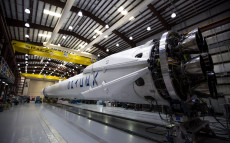- pathfindersAI
- Job Profile
Aviation Inspectors
Summary
Aviation Inspectors: Guardians of the Skies
What They Do
Aviation inspectors serve as the sentinels of safety in the aviation industry. They meticulously scrutinize aircraft and aviation components to ensure compliance with stringent regulatory standards. Their overarching goal is to guarantee that every flight that takes to the skies is as safe as possible. Whether they are examining commercial airliners, private planes, or the facilities where these aircraft are built and maintained, aviation inspectors play a critical role in safeguarding public trust and safety. They work for various entities, including federal agencies, private corporations, and manufacturers, dedicating their expertise to maintaining the highest safety standards in aviation.
Job Responsibilities
The responsibilities of aviation inspectors are vast and multi-faceted. Primarily, they conduct detailed inspections of aircraft, assessing everything from engines and instruments to fuselage and landing gears. They meticulously review maintenance logs and repair records to ensure every component meets the rigorous standards established by regulatory bodies like the Federal Aviation Administration (FAA). Besides technical inspections, aviation inspectors also evaluate operational procedures, ensuring that airlines and maintenance facilities adhere to all legal and safety regulations. They may conduct flight tests, oversee the work of mechanics and technicians, and even participate in accident investigations. Documentation and reporting comprise a significant portion of their workload, requiring precise attention to detail and an unwavering commitment to accuracy.
Essential Skills
Given the complexity and technical nature of their work, aviation inspectors must wield a unique set of skills. A profound understanding of aviation technology and engineering principles is paramount. This technical knowledge must be complemented by keen observational skills and a meticulous eye for detail. Strong analytical and problem-solving abilities are crucial for diagnosing issues and suggesting remedial actions. Communication and interpersonal skills also hold significant importance, as inspectors often interact with aviation professionals, regulatory bodies, and sometimes, the public. The ability to produce clear, comprehensive reports and documentation is vital. Furthermore, a robust commitment to ongoing education ensures that inspectors remain abreast of evolving aviation standards and technological advancements.
Educational Pathways
Aspiring aviation inspectors typically begin their journey with a solid educational foundation in fields related to aviation. An associate or bachelor’s degree in aeronautical engineering, aviation maintenance, or a similar discipline provides the necessary technical grounding. Many inspectors also gain valuable hands-on experience by first working as aviation mechanics or technicians. Certification is another critical step, with the FAA offering various levels of certification and endorsements that validate an inspector’s expertise. Continuous professional development through workshops, seminars, and additional courses keeps inspectors current with industry regulations and technological innovations.
Career Prospects
The career outlook for aviation inspectors is promising, underpinned by the ever-present need for stringent safety standards in the aviation industry. As global air travel continues to grow, the demand for qualified inspectors is expected to rise correspondingly. Opportunities abound in diverse settings, such as airlines, maintenance facilities, government agencies, and manufacturers. With experience, aviation inspectors can advance to senior positions, assuming roles that entail greater responsibility and oversight. This career pathway offers both stability and the satisfaction of contributing to public safety.
Conclusion
Aviation inspectors serve as the indispensable guardians of the skies, ensuring that every aircraft operates safely and efficiently. Through their rigorous inspections and adherence to regulatory standards, they play a vital role in maintaining trust in the safety of air travel. With a compelling combination of technical skills, rigorous training, and a steadfast commitment to safety, aviation inspectors are essential to the aviation industry. For those with a meticulous nature, a passion for aviation, and a dedication to public safety, a career as an aviation inspector offers a rewarding and impactful professional journey.
Video
Compensation
| State | Median Salary | Median Hourly | Positions |
|---|---|---|---|
| AL | 78,400 | 37.69 | 130 |
| AZ | 44,880 | 21.58 | 740 |
| AR | 81,160 | 39.02 | 100 |
| CA | 74,780 | 35.95 | 1,900 |
| CO | 55,820 | 26.84 | 520 |
| CT | 78,520 | 37.75 | 190 |
| DE | 65,280 | 31.39 | 40 |
| DC | 97,130 | 46.70 | 140 |
| FL | 83,350 | 40.07 | 1,820 |
| GA | 94,220 | 45.30 | 930 |
| HI | 90,380 | 43.45 | 170 |
| ID | 104,060 | 50.03 | 90 |
| IL | 61,450 | 29.54 | 840 |
| IN | 65,440 | 31.46 | 310 |
| IA | 71,310 | 34.29 | 120 |
| KS | 99,520 | 47.85 | 250 |
| KY | 88,780 | 42.68 | 290 |
| LA | 85,570 | 41.14 | 100 |
| ME | 52,890 | 25.43 | 120 |
| MD | 85,260 | 40.99 | 370 |
| MA | 92,870 | 44.65 | 450 |
| MI | 77,660 | 37.34 | 310 |
| MN | * | * | 230 |
| MS | 70,790 | 34.04 | 100 |
| MO | 54,530 | 26.22 | 370 |
| MT | 60,160 | 28.92 | 140 |
| NE | 94,690 | 45.52 | 130 |
| NV | 95,680 | 46.00 | 230 |
| NH | 108,700 | 52.26 | 30 |
| NJ | 46,750 | 22.48 | 1,300 |
| NM | 60,130 | 28.91 | 130 |
| NC | 73,200 | 35.19 | 380 |
| ND | 95,630 | 45.97 | 60 |
| OH | 75,920 | 36.50 | 540 |
| OK | 91,100 | 43.80 | 270 |
| OR | 91,100 | 43.80 | 180 |
| PA | 67,180 | 32.30 | 410 |
| SC | 76,000 | 36.54 | 120 |
| SD | 73,880 | 35.52 | 90 |
| TN | 76,230 | 36.65 | 380 |
| TX | 81,020 | 38.95 | 3,400 |
| UT | 53,460 | 25.70 | 240 |
| WA | 95,730 | 46.03 | 490 |
| WV | 47,740 | 22.95 | 100 |
| WI | 104,580 | 50.28 | 50 |
Similar Occupations
In this area you will find other occupations that are close to the one you were viewing in tasks, knowledge and work environment. If the primary job profile you are viewing isn't quite to your liking, take a look around and see what else is available.
Basic and Premium Accounts have more alternative occupations available than the Free account.

Aerospace Engineering and Operations Technologists and Technicians - 17-3021.00
Aerospace Engineering and Operations Technologists and Technicians assist in the design, testing, and maintenance of aircraft, spacecraft, and related systems and equipment. They utilize technical skills and advanced tools to ensure the functionality, safety, and efficiency of aerospace technologies and operations.
-
$77,830/yr
Median Pay -
10,640
Number of Jobs

Aircraft Mechanics and Service Technicians - 49-3011.00
Aircraft Mechanics and Service Technicians are responsible for diagnosing, repairing, and maintaining the structural, mechanical, and electronic systems of airplanes and helicopters to ensure they operate safely and efficiently. They perform routine inspections, troubleshoot issues, and replace or repair components to meet stringent safety standards and regulatory requirements.
-
$75,020/yr
Median Pay -
137,630
Number of Jobs